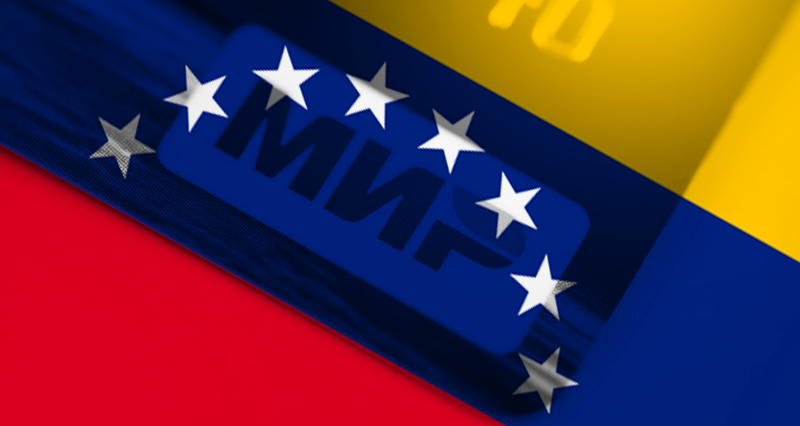By Douglas Bolivar / Caracas, Venezuela
Venezuela, after the blockade unilaterally imposed by the United States and in force already for a decade, used the Russian and Chinese financial system to make payments to these countries. This is the observation and statement of economist Juan Carlos Valdez concerning the difficulties of the national government not only in determining its income, but even its expenses for payments for the purchase of goods in the international market.
“A relatively new system that Venezuela has just accepted is the Russian MIR system. Tis is the same as Visa or Master Card, only it is Russian,” explains Valdez.
We could use that system with the countries that are affiliated, which are about twelve”, adds Valdez, explaining the ways used by Venezuela to circumvent the administrative fence and be able to cancel what matters.
And finally, adds Valdez, another mechanism that the Venezuelan government had to resort to is “direct payment in gold to our suppliers” since a long time.
For his part, Richard Canaán, who served as Hugo Chávez’s Commerce Minister in 2010, recalled that once the US banks closed the accounts and confiscated the capital of PDVSA and the National Development Fund (Fonden), the country had to enable urgent payment mechanisms for “the products that were regularly bought with the foreign currency generated by the sale of oil.”
To illustrate the dimension of the crisis that Venezuela has faced, Canaán recalled that in 2013, Venezuela had revenues of around 56 billion dollars, almost all of it from oil sales. These accounts in 2020 plummeted to less than a billion, specifically 743 million dollars.
Canaán refers to the administrative obstacle that the sanctions meant for Venezuela with another specific case: Venezuela imported a million ton of wheat from the United States, with which it covered its national demand, and that purchase was honored with what it sometimes obtained in the Citgo gas station network.
Substituting wheat imports from the United States
In addition, says Canaán, moving this material from the United States took four days, which translated into savings in freight costs. By having to resort to European suppliers, the transport time was extended to 30, 35 and even 60 days.
There were, additionally, “cash operations, because we cannot make letters of credit as a result of the sanctions.”
The former minister highlighted the support of foreign countries and companies to minimally overcome this colossal challenge, recognized even by the United Nations Organization.
The difficulty that the Venezuelan government went through to make payments operational is also endorsed by Denis Balza, a former deputy of the National Assembly and currently an advisor to the Ministry of the Communes.
“It has been quite hard to acquire things,” he summarizes.
“Thanks to Cuba, Russia, China and Iran and many international allies and to that great world alliance, we are overcoming these difficulties,” Balza said.

















Leave a Reply